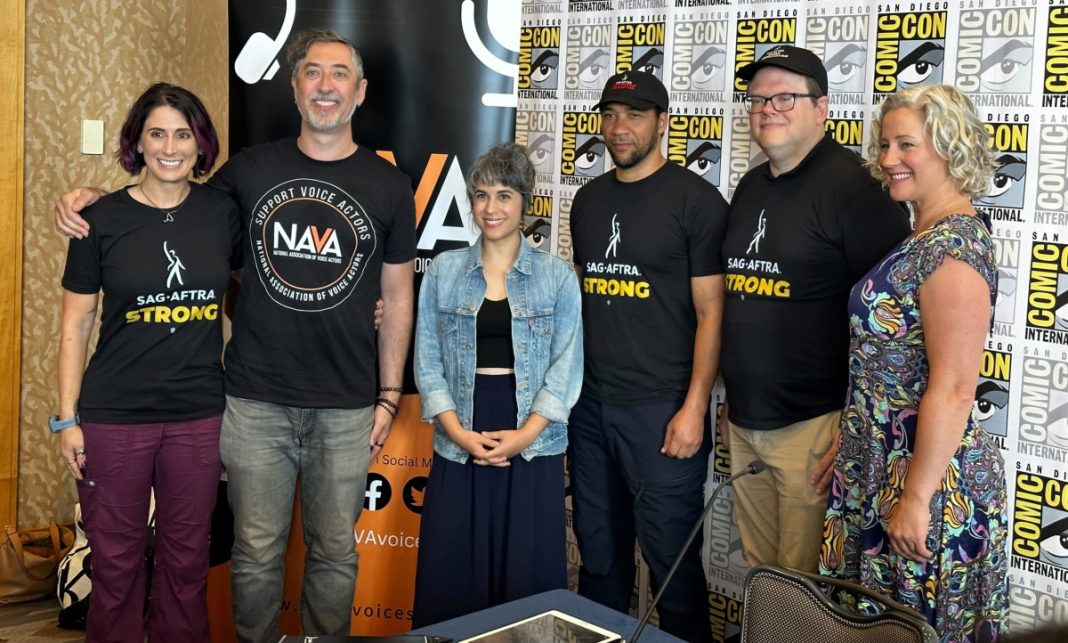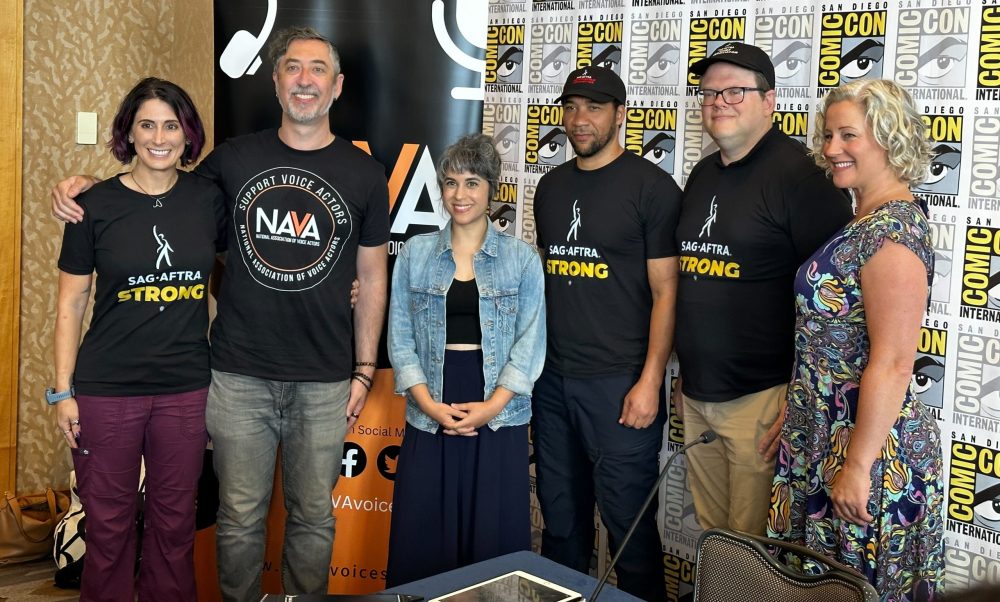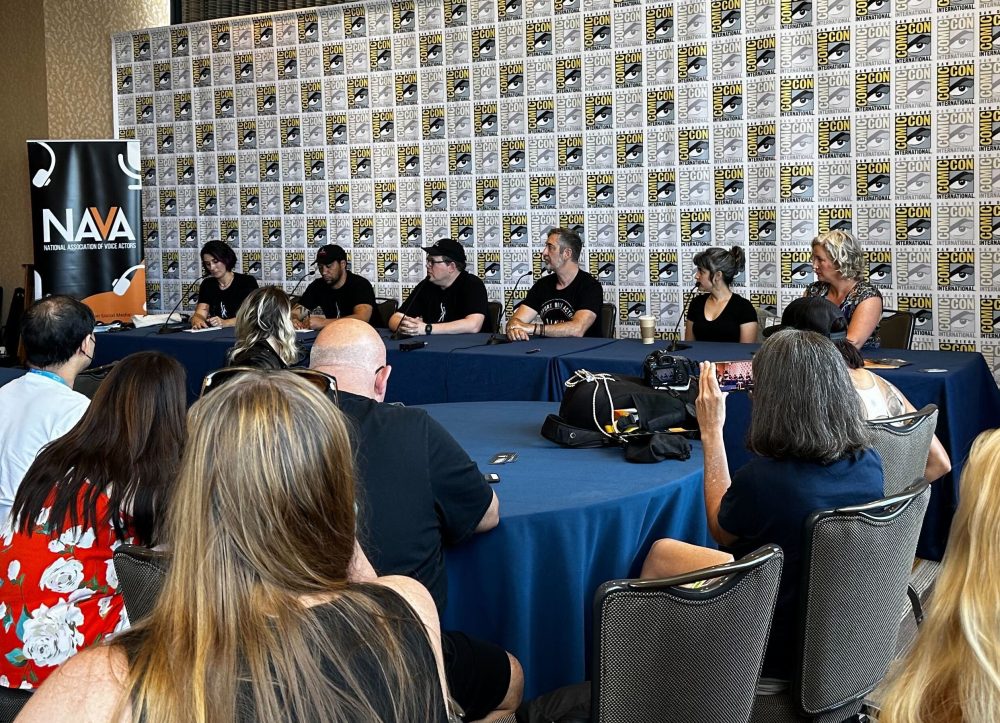By Ani Bundel
Since the debut of ChatGPT, AI and machine learning have been at the forefront of the discussion in the arts and entertainment. Performers are faced with adapting to this groundbreaking technology, much like the sound revolution in movies a hundred years ago. These machines can not only replicate their voices and movements but also feed machine learning to create entirely new characters.
The National Association of Voice Actors (NAVA) already had a panel scheduled to discuss the AI revolution in entertainment at San Diego Comic Con 2023 before the WGA and SAG-AFTRA strikes began. Ahead of their panel discussing how existing legal structures and new standards need to be built for performers and producers to collaborate on great products while still protecting individual rights to performance and publicity, the group met with the press to discuss the state of the industry. The group included moderator Linsay Rousseau (Transformers: War for Cybertron) and the panelists Ashly Burch (Mythic Quest), Cissy Jones (The Owl House), Zeke Alton (The Calisto Protocol), Tim Friedlander (the president/founder of NAVA) and Duncan Crabtree-Ireland (SAG/AFTRA National Executive Director & Chief Negotiator).
The panel opened up discussing the abuses of voiceover work, and how frightening it is to have one’s voices taken and used without their permission. As Jones noted, there are things she never wants her voice to be used to say, because she would never want her children to hear them. That discussion of family came around again, when asked about rights of the dead. Crabtree-Ireland admitted there’s no federally mandated law, it’s state by state. The panel called for a law that would protect the dead so that their families can control their likeness and voice. It’s bad enough they’re already fighting illegal use of people’s likenesses in deepfaking. Jones pointed out that this is why the politicians will treat this technology as worth regulating in a way they never have with the internet. “We’re coming up on an election where deepfaking is a real threat. They’ll care.”
“Let’s face it. Pandora’s box is open,” stated Alton. He said actors, both voice and on screen, understand there’s no going back. “What we are looking for is consent and compensation.” There also needs to be transparency in what artificial intelligence picks up, so that people can see who’s work is being used to make millions for CEOs while they are uncompensated. “There’s a philosophical difference between how the creators feel and how the employers feel. [They] don’t want to get caught at a competitive disadvantage. But they’re bargaining for a competitive disadvantage and a financial advantage. We’re bargaining for our very livelihoods. You can die on this hill, or you can be killed there.” Crabtree-Ireland agreed. “No one should think that voice actors and others are not working together.”
Burch, who was there as a WGA member and a voiceover worker, pointed out that this is about protecting those who are coming up. The ground floor use for AI that studios want to do is these entry level jobs where actors cut their teeth. The same goes for writers, AI is a tool that could do amazing things in the right creative hands, but right now it’s being used to replace them, and not pay them.
But it was Crabtree-Ireland who summed up what the strike is fighting for and what’s at the heart of this struggle to implement AI technology: Informed Consent. He decried the “sham of consent” where “consent” is embedded in unreadable language on page 12 of a 50-page contract. Everyone agreed the “In perpetuity” language in clauses was currently untenable, including the stuff that reads “in the known universe” or “technologies, both current and future.”
“There’s no reason that we can’t have some common-sense guidelines around it,” Crabtree-Ireland said. “The truth is, in this industry, a handful of huge mega corporations are going to make decisions about how this is implemented. Those executives and people can make good choices, or they make bad choices. We think all of us together can convince them to make good choices.”
Miss any of our earlier SDCC ’23 coverage? Find it all here!










